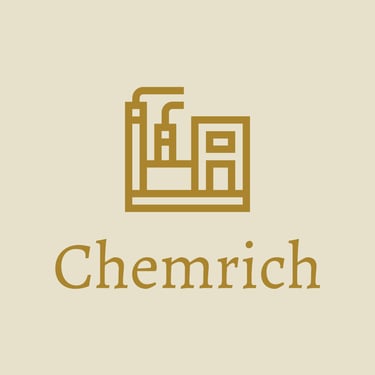Intelligent Microencapsulation 2025: Smarter Additives for Coatings, Adhesives & Cleaners
New 2025 studies show microcapsule-based “intelligent coatings” and AI-aided capsule design. See where microencapsulation adds performance—and how to source ready-to-use capsules.
shehan makani | eshan makani
8/26/20251 min read
What’s new in microencapsulation?
A wave of 2025 research details microcapsule-based intelligent coatings—from self-healing films to anti-corrosion systems—and highlights scalable shell chemistries and triggers (pH, shear, temperature). Separate work explores machine-learning-assisted capsule design, accelerating selection of core/shell pairs for targeted release.
Why it matters for formulators
Performance on demand: Encapsulate catalysts, corrosion inhibitors, fragrances, or defoamers for controlled release, improving shelf stability and end-use efficiency.
Sustainability angle: Smarter delivery can reduce total additive load, helping with VOC limits and potential PFAS phase-outs in barrier roles.
Design maturity: Reviews catalog practical processes (e.g., interfacial polymerization, coacervation) and greener capsule strategies emerging from 2024–2025 literature.
Applications to pilot now
Self-healing anti-corrosion primers with inhibitor-loaded capsules.
Fragrance/terpene capsules for hard-surface cleaners—pair microencapsulated D-Limonene with biosurfactants for long-lasting scent and solvency.
Encapsulated crosslinkers in 2K adhesives to extend pot life and trigger cure under heat/shear.
How Chemrich helps you deploy
Capsule Sourcing @ Low MOQ: Access vendors for microencapsulated corrosion inhibitors, fragrances, and catalysts.
IntelliForm™ Capsule Fit: We screen shell materials for compatibility with your resin/solvent system and simulate release kinetics.
Regulatory pack: Full SDS/COA and (where applicable) PFAS-free declarations for your compliance files.
Product spotlights
D-Limonene (Tech Grade) — for green cleaning, degreasing, solvent replacement trials. Include CAS, specs, pack sizes, and SDS download.
Calcium Chloride Dihydrate, FCC Grade (E509) — for food processing/firming/anti-browning; FDA GRAS (21 CFR 184.1193) with recent GRAS
Chemical Solutions
Trusted partner for industries seeking high-quality chemicals, custom manufacturing solutions, and advanced pharmaceutical equipment.
Innovation
Growth
© 2025. All rights reserved.
Connect
Chemrich Global.


